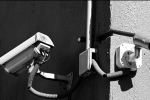May 2005
Buildings and Grounds
How Does It Work?
How do your boilers work? Where do you go to turn on, or down, or whatever, the air conditioners?
The fire alarm has gone off in the middle of the night and someone from the alarm company is on the phone with you...because your church is between clergy, and someone put your name down as the contact “in the meantime.” Do you know the alarm code? Is it just a wiring problem caused by the recent electrical outage? Or should the fire department be called?!?!?
Welcome to the world of church maintenance. And that’s just for starters.
Most churches, big or small, have systems upon systems devised by nice, well-intentioned and even skilled people — staff and volunteer — who then moved on, died, or just forget what they did in the first place.
Whether it’s a copy machine blinking at a stumped volunteer, or a caterer looking at some piece of parish kitchen equipment saying, “How the heck does THAT work?” someone once knew all the answers, and where to kick the machine. But now it’s you...and you don’t have a clue.
Put it all together
The answer is not brain surgery. It’s a parish machinery and/or maintenance manual...a written record that gets passed down (and a copy or two tucked away somewhere in case someone accidentally walks off with the original). How to do it?
Start where you are with every warranty/instruction manual you can find in the office or in the sexton’s closet. Gather them all together and make some copies.
- Ask Old Joe and Sally. Get the former sextons and/or buildings and grounds people in and walk around with them. It’s amazing what comes up when you walk into a basement and they say “Oh, that switch over there? Doesn’t work...you push this here, and then turn that.”
- Ask the building committee about previous construction. Things are often different than what is on the plans. Some things were left off or altered in the actual doing, and somebody knows what and why.
- Ask the parish secretaries, current and former. They’ve probably been asked just about everything by someone along the way and had to figure it out, or who to call. Specific questions can be helpful here. “Where’s the XYZ?” or “Why doesn’t the dial seem to do anything?”
- Ask former clergy. On a hot July Saturday it was a rector or vicar the bride’s mother was hollering at about the air conditioning. Trust me, they know lots of little stuff — and they know who else to talk to.
- Look in the closets. Lurking in them will, no doubt, be lots of things you DON’T need (and should be thrown out, but that’s for another day). You just might find plans, ledgers, records, warranties and more.
- And then...just write it down...whatever you can find. Don’t worry about perfection. Something IS better than nothing. Alphabetize it by broad obvious titles so regular folks can hunt through it, and keep it handy, as in the office or sacristy.
And don’t forget to throw the new material in as you go forward. Someone someday will be very appreciative.
A priest for thirty-five years, the Rev. Leonard Freeman has spent countless hours foraging in various church basements and closets for information not written down.






